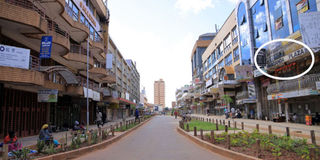Rapid urbanisation puts leaders in tricky position

Experts have said the internal and external migrations fuelled by the pandemic, climate change, and unemployment are greatly contributing to rapid urbanisation thus need for urgent intervention.
What you need to know:
- Uganda has been urbanising at a rate of about six percent annually
Experts have said the internal and external migrations fuelled by the pandemic, climate change, and unemployment are greatly contributing to rapid urbanisation thus need for urgent intervention.
The country urban advisor for Cities Alliance, Mr Samuel Mabala, told Sunday Monitor that rapid urbanisation calls for proper planning and ensuring that the urban poor have access to social services.
This, he added, includes health, education, water and sanitation, decent settlements and employment opportunities.
Uganda has been urbanising at a rate of about six percent annually.
Mr Mabala said currently one in every four Ugandans resides in urban areas and that about 25 percent of the population lives in urban centres. It is also projected that half of Uganda’s population will reside in urban areas by 2040.
Mr Mabala said urban poverty and inequality in and out of cities pose a serious challenge especially in sub-Saharan Africa where slums and informal settlements constitute a substantial part of the urban fabric.
He noted that cities provide critical opportunities for post-pandemic recovery, but they need to be well positioned to achieve this.
Cities Alliance recently held a meeting in Kampala to find ways of addressing urban poverty through slum upgrading.
Junior Housing minister Persis Namuganza said upgrading of settlements will not be sustainable unless cities are made to be productive and efficient. This, she further proffered, involves providing the poor with economic opportunities to build their assets and income.
The director of housing in the Ministry of Lands, Housing and Urban Development, Mr Dave Kyayangayanga, noted that Uganda’s open door policy for refugees means urbanisation cannot be treated lightly.
“Where there is a refugee crisis like in the West Nile and sub cities like Kisoro, the country tends to face unprecedented struggles to provide the basic infrastructural facilities,” he said, adding, “Planning for them is very important.”




